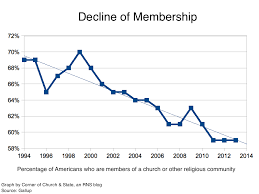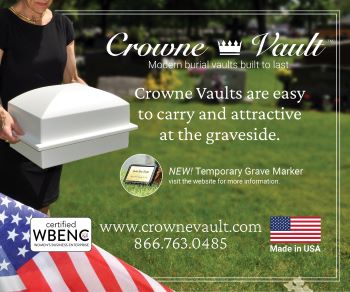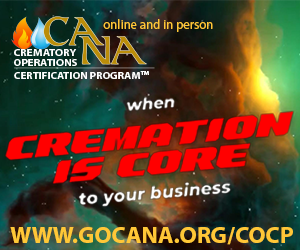Will a “Celebrant on Staff” make a difference to consumer choice

I received an unsolicited e-mail the other day about taking a course that would lead me to become a “Certified Funeral Celebrant”. I’m not interested in that but, more and more, I see greater numbers of the consumer public shedding the idea of using formal clergy in the memorialization of their loved ones.
And, as I was thinking about the thought of funerals, memorial services, and out-of-the-norm death care services, I started to think that “Funeral Celebrants” are in more and more demand everyday. The crux of my service as a funeral director was from 1980 thru 2013, which is now ten years ago.
Even in my time the trend was for increasing numbers of families that questioned how, or who, since they have no church membership, would “officiate” at the funeral of their loved one. Luckily our funeral home was in a large retirement area and we had several retired clergy around who appreciated the chance to “spread the gospel” to families who had either “fallen away” from the church or never joined a church. Most of these retired clergy relished the chance to have an audience where they could spread the good news of the gospels once again.
And, most families appreciated those thoughts and the message that was delivered. But today, as you can see from the small graph below, the decline of church membership continues in this country and I’m of the belief that more and more mourners now prefer a “secular” officiant over a “religious” officiant at a death care service.

In researching this article I found this information from SCI’s Dignity Memorial branch giving consumer information on a “Funeral Celebrant”. Just by having it available for consumer information on their website gives some indication of the growing popularity of the idea. Here’s is what they say about why you might want to use a celebrant:
- You need help personalizing a funeral service and you’re not sure how to do it.
- You want someone who is more flexible and experienced than a traditional minister to guide the service.
- You are looking for someone to act as an officiant and as the main speaker at a memorial.
In my lifetime I’ve also seen a movement whereby American citizens more often than not look for answers from an “expert” than dig deep inside themselves to find their own answers to questions that they may have. I’ve even moved that way — for instance looking at a YouTube video on fixing my lawn mower instead of just getting out there with my tool set and going at it.
On this website titled “The Ultimate guide to a Celebrant-Led funeral” I can see why many would look to a celebrant for guidance on something that they are not familiar with. The website states this, as to how a celebrant will help, among other things:
- Be a point of support and guidance from the very first meeting right through until the end of the service

Tom Anderson
Funeral Director Daily
Funeral Director Daily take: The one obstacle I see from the funeral home’s point of view is that I think it may be difficult for mourning family members to separate the guidance that they get from a funeral celebrant from the guidance that they get from the funeral director during the death care process. From my point of view the jobs of the two are distinct and different — but I’m not so sure that every family will recognize that.
Because of that I think it is probably best that the funeral home have an incredible working relationship with the celebrant, or better yet, have a celebrant on staff for the families that they serve.
I think celebrants will be used more and more going forward and because of that I would suggest having funeral directors who are interested in being out front and not intimidated by being a speaker and leader of a service look into celebrant training. By doing so a funeral home can be assured that its philosophy for guiding a family from grief through memorialization to remembrance is not intercepted by someone with a differing philosophy.
I’d go as far to say that having celebrants on staff and the care that they give as a celebrant can be a seamless “continuity of care” to the family from the funeral home. That continuity on how a family can be cared for by, in order, a funeral director, a celebrant, and an aftercare program could be a difference maker in many consumer choices for funeral home selection. . . . . .especially when there is no organized church and/or clergy involved.
If I was still operating my funeral home and I had not done so yet, I would look for ways in which I could present secular celebrants to families . . . . . . just the offer and opportunity may move families from a simple direct cremation with no services to a more thorough memorialization with ancillary services.
More news from the world of Death Care:
- Hull funeral director inquiry: Calls for funeral regulation and licensing. BBC (Great Britain)
- Government warned four years ago that funeral directors should be regulated. The Telegraph (Great Britain)
- As threats to Black cemeteries persist, a movement to preserve their sacred heritage gains strength. Military News (VA)
Enter your e-mail below to join the 3,556 others who receive Funeral Director Daily articles daily:
“A servant’s attitude guided by Christ leads to a significant life”





















I worked for an SCI funeral home for 14 years before injuring my back. I retired at 62 from being an ordained pastor to working there. I was a “funeral service assistant.” I facilitated the plans that the directors made with the family. In the 14 years, I facilitated about 2500 services. We were busy. On several occasions, I served as clergy too. Two times, the scheduled pastor didn’t come. I’m 77, but I would still work, but my back says no! We did use celebrants. They did well. They received $500, but clergy was paid $250 if the stipend was paid through the contract.